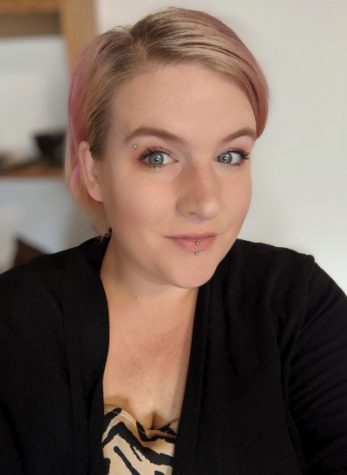Malia Lewis: Q&A with Whitman’s New Sexual Assault Victim’s Advocate
February 25, 2021
Whitman College has a new Sexual Assault Victim’s Advocate (SAVA). The college hired Malia Lewis, who is employed by Walla Walla YWCA as the Tri-College SAVA, on Jan. 7. Lewis grew up in Walla

Walla and returned to the area after living in Portland for a decade.
The Wire asked Lewis why she decided to become a SAVA and about her goals for taking on this role. The following conversation has been edited for clarity and brevity.
The Wire: What does your job entail as a SAVA?
Malia Lewis: As a SAVA, my job entails meeting one-on-one with folks who have experienced sexual assault, meeting with folks who want to have conversations about what sexual assault means or can look like, working on outreach and education, community events on campus or out in the broader community, and helping to elevate student voices around the issues of sexual assault and consent. I really want to lend my professional platform to feasibly bring student voices to the center of the conversation, so that we do not have repetitive or canned conversations.
Wire: What interested you in taking on this type of professional role?
ML: I have a lot of background in serving people and focusing on activism and advocacy. This seems like a really perfect blend of those different dynamics. I get the opportunity to serve folks one-on-one who are dealing with some of the most vulnerable issues that they may ever deal with. I’m a survivor of sexual assault that occurred in Walla Walla, too, so being able to do something actively to make this community safer and resolve some of the violence that occurs here is appealing to me.
Wire: Why do you wish to serve the Walla Walla community specifically?
ML: In Walla Walla, folks talk about its fertile soil, its alkalinity, and all of those agricultural things all the time. On the level of social networking and activism, Walla Walla also has really ripe ground. Walla Walla is slightly smaller, so everybody kind of knows everybody. It’s much easier to keep track of who’s working on which projects and to bounce ideas and resources back and forth efficiently. I think that all of these things can be built upon in a way that can be really transformational, and I’d like to be part of it.
Wire: How does being employed by the YWCA while working at Whitman affect your job?
ML: I think that it’s actually very important that I work with the YWCA and within their mission in order to facilitate the services that I do on campus, because it gives me an opportunity to exist outside of the machinations of the institution. It lends me the opportunity to engage in vulnerable conversations with students without them fearing that I will share their story without their consent. I think that one of the most important pieces is that I’m not a mandated Title IX Reporter, and folks can have conversations with me which won’t go anywhere.
Wire: What are some of your goals or plans as you step into this position?
ML: I’m really looking forward to finding ways to elicit and elevate student voices as we navigate things like April’s Sexual Assault Awareness Month and October’s Domestic Violence Awareness Month. I want to enrich community conversation around those issues by activating the community, which is already an expert on these topics by virtue of lived experience. Building relationships on Whitman campus and having a solid sense of what the community looks like and feels like and how to navigate it in a way that is valuable for everyone is another goal.
Wire: Do you think the COVID-19 pandemic and the conditions on campus will impact either the need for you as an advocate or the ability for students and staff to reach you?
ML: I am trying to do the best I can to be as available as possible while still honoring COVID-19 restrictions to make sure that everybody is as safe as they can be. COVID-19 conditions definitely isolate us, and when we’re isolated it’s easier for us to not reach out for help if something happens because there is an extra barrier there that is sensed internally. I hope that folks know that I am accessible via phone, via Zoom, even in person if that’s useful, so that they don’t feel quite so isolated despite the very pseudo-quarantine conditions.
Lewis’s office on Whitman campus is located in Hunter 406. She can be reached via phone at (509)-526-3032 or email at sava@ywcaww.org.





